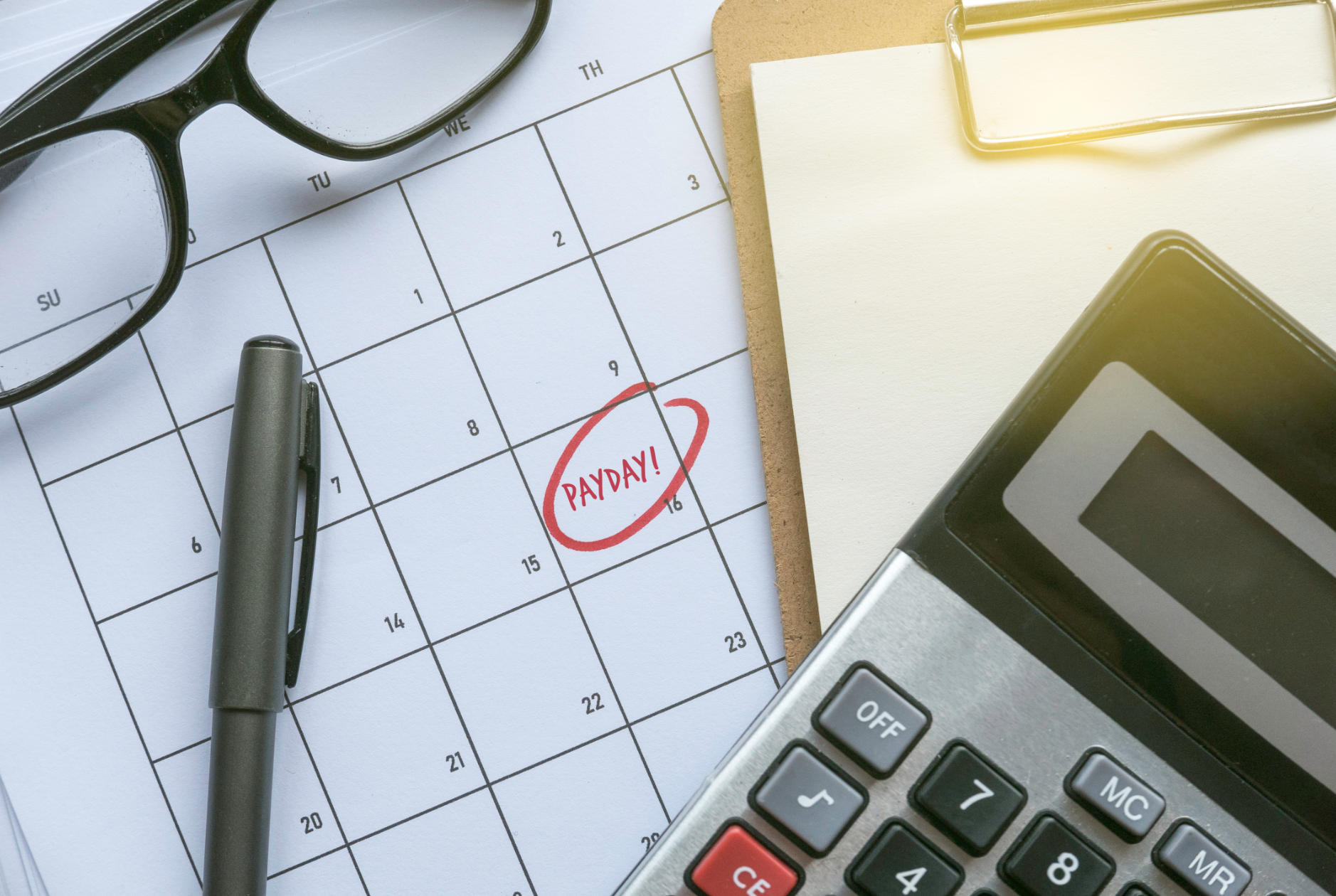
Dutch income tax return letters don't come with English translations, and they assume you're already fluent in both the Dutch tax regulations and language. And just like that, a seemingly simple piece of mail becomes a symbol of something deeper: the reality that building a life in a new country means facing unfamiliar rules. unfamiliar paperwork, and the quiet stress of not knowing what happens if you get it wrong.
What is expat tax advice, and why does it exist?
The Dutch tax system is designed for residents who know their way around. Residents are familiar with DigiD, the individual resident tax form, and how to contact the Dutch tax office for help. Expats? Not so much. And if your personal situation involves income from abroad, dual employment, or you're married to someone living in a different country, things can get difficult for you to understand.

For all these expat tax services, consultants Netherlands can provide expat tax help. They are highly specialized professionals who understand how the Dutch tax system interacts with foreign tax laws, who know how to read between the lines of official forms, and who can advocate on your behalf with the Dutch tax office. They translate your circumstances into actionable guidance and support, making sure that your tax liability and your tax exemptions are calculated correctly.
For example, if you're receiving rental income from abroad or contributing to a pension in your home country, these elements must be reported as part of your worldwide income. But depending on the country you're for and the treaties in place, you might also be eligible for a tax deduction to avoid double taxation. These are the kinds of details that define professional, effective tax advice.
What expat taxes feel so complicated
One of the biggest hurdles is the volume and the vagueness of the tax forms. The M form, which many expats must file during their first year, is infamous for its length and complexity. It is only available in Dutch, can run over 80 pages depending on your situation, and includes questions about both your Dutch and non-Dutch financial life.
The P form is used if you lived in the Netherlands for the entire tax year, while the C form is used by non-residents with Dutch income. The O form and the F form relate to very specific circumstances, like leaving the country or reporting for a deceased individual. Each form requires a set of required documents, including your BSN, employment contract, payslips, annual income statements, and in many cases, proof of municipality registration.

Adding to the complexity, certain benefits and deductions like the mortgage interest deduction, childcare subsidies, and reimbursement for medical expenses require you to report in exact detail not just what you earned, but what you spent. These elements, when submitted correctly, reduce your tax liability and can lead to sizable returns. When done wrong, they could trigger audits or loss of entitlements.
This complexity is amplified by deadlines. Your tax return must typically be submitted by May 1st for the previous tax year, and failure to do so without an extension can result in fines. And let’s not forget that the Dutch tax office operates almost entirely in Dutch, making it especially important to work with a trusted tax advisor whom you can easily contact via e mail if you're still getting comfortable with the language.
The tax benefits expats should know about
Despite the challenges, there are real advantages to navigating this system properly. The most significant one for newcomers is the 30% ruling, a generous tax benefit designed to attract international talent. If approved, it allows qualifying employees to receive 30% of their gross salary tax-free for up to five years. The application must be made jointly by the employer and employee, and it must be submitted within four months of starting your job. Missing that window can mean missing out on thousands of euros.
Another popular benefit is the mortgage interest deduction, or hypotheekrenteaftrek. If you buy a home and use it as your primary residence, the interest paid on your mortgage is deductible from your income tax. However, the process involves submitting your purchase agreement, interest overviews from your bank, and registering the property with the municipality.
Then there are the social supports. Through programs like kinderbijslag (child benefit) and kinderopvangtoeslag (childcare allowance), families can receive monthly support if they meet income and residency conditions. These subsidies can significantly reduce the cost of raising a child in the Netherlands, but they require accurate tax filings and consistent registration.
Deductions are also available for specific health care expenses, approved educational expenses, and even charitable donations. Depending on how much you’ve spent and how it’s documented, these deductions can further reduce your tax liability.
What kind of tax services are available for expats?
The entire Netherlands is home to a growing number of agencies that provide the tax services expats need. Some focus only on basic filings, while others offer full-spectrum assistance for self-employed professionals, international families, or people with complex asset portfolios.
Common offerings include:
-
Assistance filing your annual tax return using the correct tax return form (especially the M form, P form, or C form)
-
Application preparation for the 30% ruling
-
Filing backdated returns if you missed a previous tax year
-
Support with setting up small business taxes and ICP declarations
-
Advice for navigating international tax implications and worldwide income reporting
-
Help with final assessments, DigiD setup, and email support during your process
How to choose the right tax advisor
When you're looking for the best expat tax service, the first thing to consider is expertise and then tax situation. Not every accountant in the Netherlands understands the nuances of cross-border tax matters. Choose someone who works specifically with expats and has experience handling everything from the 30% ruling to dual taxation treaties, including issues related to your Dutch employer.
Communication matters. You want someone who can clearly explain what documents they need from you, what deadlines are approaching, and what your tax liability will look like, without drowning you in jargon.
Ask about pricing upfront. For standard filings, you can expect to pay between €150 and €300. If your case involves foreign property, dual income, or self-employment, the price may rise to €1,000 or more. Make sure you understand what's included, how often you can ask questions, and whether services like filing appeals or speaking to the Dutch tax office are part of the deal.
And finally, be sure the advisor knows the finer points of Dutch income tax, international tax, tax declaration procedures, and residency obligations. With a system this intricate, experience in technical storage can be the difference between stress and success.
Common questions about expat tax advice
One of the most common concerns is timing. How long does it take to complete the process? With all required documents ready and a responsive tax advisor, your return can be filed in a matter of days. However, the Dutch tax authorities can take anywhere from a few weeks to several months to issue a final assessment, especially during peak periods (March–July).
Another popular question is: "Am I eligible for the 30% ruling?" The answer depends on how recently you moved to the Netherlands, your gross salary, your level of education, and whether you were recruited from abroad. Missing even one eligibility requirement, unless you have a legitimate purpose, can disqualify your application; another reason to get help early.
Finally: "Do I really need a tax advisor?" If you’re fluent in Dutch, have only one source of income, and don’t qualify for special rulings or deductions, you might be fine on your own. But for most expats, professional support offers peace of mind, providing both the information and often more money back.
Why expat tax services are worth it?
The Dutch tax system isn’t trying to confuse you, but it is built for people who grew up with it. For newcomers with international backgrounds, it can feel like solving a jigsaw puzzle in a language you don’t speak.
That’s why expat tax professionals exist. They take the stress out of tax season by helping you handle the business forms, meet deadlines, and make the most of the benefits you're entitled to.
Instead of dreading the arrival of the blue envelope, imagine opening it with confidence, knowing you’ve got a plan and a partner. Whether you’re filing for the first time, preparing to leave, or just trying to make sense of it all, expat tax services Netherlands are here to help.
So go ahead. Open the envelope. You’ve got this.






-1.png?width=446&height=493&name=Ditta%20van%20Gent%20Fotografie-45-1%201%20(1)-1.png)